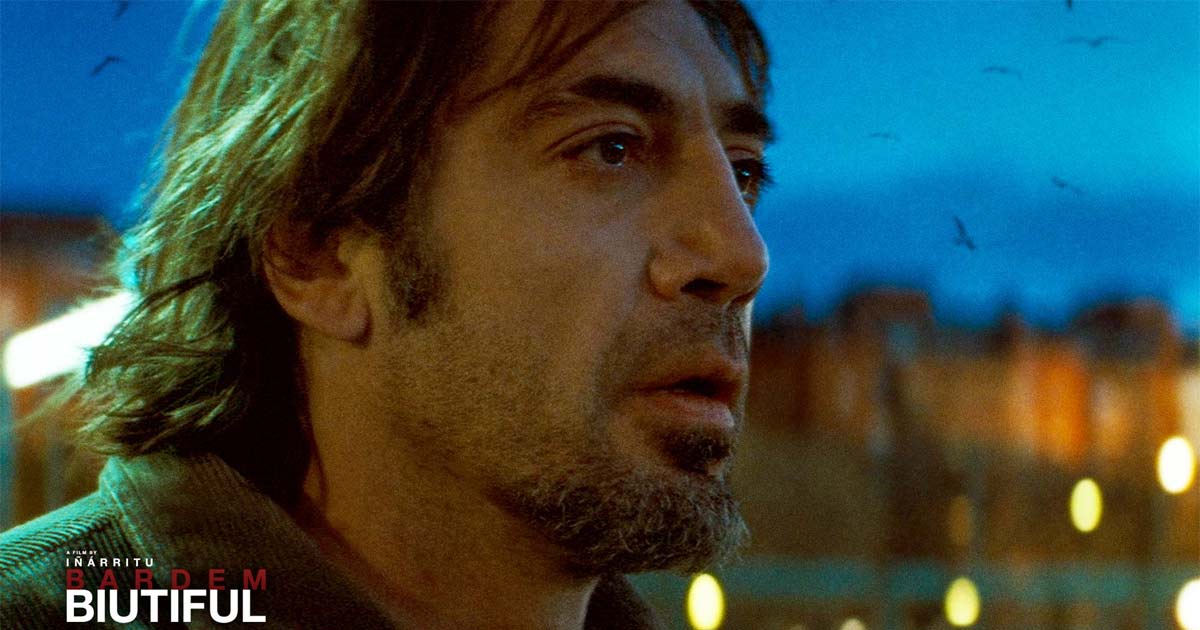
Following last month’s Ikiru, our relaunched film club moves onto a film that was directly inspired by it, Alejandro González Iñárritu’s Biutiful.
Released in 2010, Biutiful was the Mexican director’s fourth film. It followed the major critical successes of his so-called “death trilogy” that consisted of Amores perros (2000), 21 Grams (2003) and Babel (2006). Biutiful shares its theme with those films while breaking away from their style of interweaving narratives. After Biutiful, Iñárritu has gone on to direct the box office hits Birdman (2014) and The Revenant (2015), both of which also won him Academy Awards for Best Director.
Going by both the Rotten Tomatoes and Metacritic rankings, Biutiful is Iñárritu’s least well received film. It has often been criticised for its perceived bleakness, contrivance, sluggishness and self-importance. Based on box office records, it is also his only film to have lost money, at least on paper.
So, why are we watching it? Well, for one thing, one person’s bleakness is another’s beautiful melancholy, someone’s sluggishness is another’s pondering tone, and so on. And there is also the wonderful performance of Javier Bardem, for which the actor was awarded Best Actor at the Cannes Film Festival.
But more importantly for us, Biutiful is a pretty fascinating take on Akira Kurosawa’s Ikiru. The film was modelled after Kurosawa’s work and in addition to sharing a similar storyline, contains numerous references to it. There is actually a lovely article at the Directors Guild of America website, published around the time of Biutiful‘s release, where Iñárritu watches Ikiru and comments on it and how it influenced him. Still, unlike so many remakes and reimaginings, Biutiful stands on its own feet and fully makes its own coherent artistic statement.
When you watch the film, you will also notice that it was produced by a company called Ikiru Films. One might expect it to be a company that was set up just for this film, but in fact this is not the case. The Spanish production company was founded in 2004 and had produced films like the 2006 Perfume before Biutiful, and has continued to work in the industry since.
Biutiful should be widely available in most countries. Netflix has it in some places, while Google Play / YouTube, iTunes and Amazon Prime Video rent it in many others. The DVD and Blu-ray releases are also generally available for purchase, for instance through Amazon.com and Amazon.co.uk.
So, get hold of the film and let us know what you think! Boring or insightful? Melancholy or grim? Beautiful or biutiful?
And what do you make of the Kurosawa connection?






Looks like a good choice, Vil. I’ve not seen the film (I must admit I’ve disliked most of Iñárritu’s films I’ve seen, they always seem to me to be too self-important and pompous, although I did enjoy Birdman). I’ll try to track this down. I had no idea it was inspired by Ikiru.